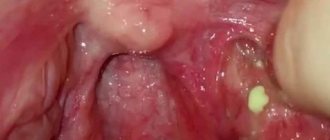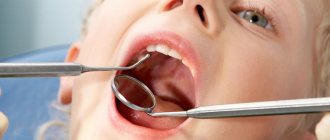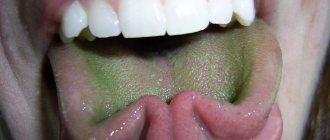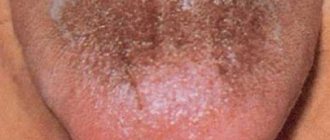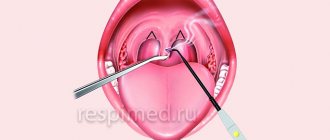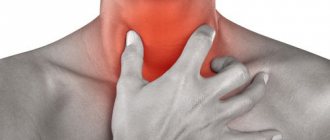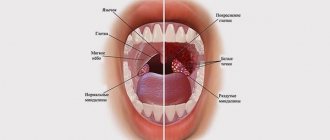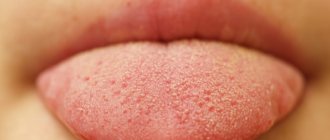The salivary glands produce a multicomponent fluid (secret), which mainly consists of water. Only 5% of saliva is enzyme compounds, amino acids, acidic salt residues and various trace elements. This secret performs a lot of important functions in the human body:
- protective (moisturizes the oral mucosa, protects it from attacks by pathogenic bacteria);
- digestive (ensures the formation of a food bolus);
- allows you to taste the food.
In a healthy person, saliva is a transparent, odorless liquid, which upon contact with the mucous membrane does not cause irritation, burning or other discomfort.
Normal saliva
Saliva is one of the most important secretions of the body, which is secreted into the oral cavity by the salivary glands. Every day we produce about 1-2 liters of this mucous secretion. Saliva serves many functions, including as a lubricating fluid, allowing us to eat and speak comfortably; saliva is a powerful antibacterial liquid. It contains several enzymes that help in digesting food.
As a rule, saliva is liquid, slightly cloudy, completely non-irritating and slightly acidic in nature. Any deviation from normal properties indicates a disease - local or systemic.
Why is my mouth sticky?
Salivary fluid that is sticky in consistency may indicate a number of pathological diseases of the body.
Salivary glands are part of the external excretory system. In a healthy person, increased salivation occurs under the influence of external stimuli such as certain foods, smells, and even thoughts about certain foods.
Salivary fluid that is sticky in consistency may indicate a number of pathological diseases of the body. A similar phenomenon often occurs in women during pregnancy as a result of an imbalance of microelements and water-salt balance.
Why my mouth is sticky possible reasons:
- chronic sinusitis;
- fungal disease - candidal or fungal stomatitis, thrush;
- infectious colds and throat diseases, flu;
- allergy; diseases of the gastrointestinal tract;
- oral diseases;
- pathologies of the endocrine system.
In addition to disturbances in the color and consistency of salivary mucus, a person may observe the appearance of the following additional signs of the development of pathology that need to be paid attention to: disturbance of taste perception; sore throat; acrid odor from the mouth; cracks on the lips; burning sensation in the mouth; hardness of the tongue muscles.
Common Causes of Sticky Saliva
Dehydration
Water is one of the main components of saliva (up to 99%). If you drink less water than required, sticky saliva reflects a state of dehydration. If this is the reason, look at the color of your urine; normally it should be straw yellow.
If you have no other complaints other than viscous saliva that tends to “stick” in your throat, you should simply drink more water.
Smoking
Smoking irritates the mucous membrane of the upper respiratory tract. This leads to increased mucus production in the upper respiratory tract. Smokers often feel something sticking out in their throat and try to swallow it.
Chronic sinusitis
Patients with chronic sinus problems often complain of thick phlegm and bad breath. This happens because the sinuses produce mucus, which continuously flows into the mouth and back into the throat. This is called post-nasal drip and causes saliva to thicken.
Patients tend to pull sticky mucus from the throat into the mouth and spit it out. Chronic sinusitis is accompanied by other symptoms such as fever or headache.
If you have any problems with your sinuses, then you need to see an ENT specialist.
Candidiasis
Another cause of sticky saliva is oral candidiasis. Check for white spots inside the mouth. If yes, then you are infected with candida fungus.
Candidiasis requires treatment with antifungal drugs. All sugars and carbohydrates in the diet should be limited. In addition, good oral hygiene is necessary during treatment.
Cold and cough
Do you have a cough or cold symptoms? When a person has the flu or any other respiratory infection that increases mucoid production, the saliva becomes viscous and sticky.
In such situations, it is necessary to treat the respiratory disease.
Autoimmune diseases
A rare cause of sticky saliva may be an autoimmune disease such as Sjögren's syndrome. To exclude this cause, you should donate blood for appropriate tests.
Seasonal allergies
If you have thick, sticky saliva only in some specific months of the year (spring, autumn), then this may be a seasonal allergic reaction to pollen.
Many people are allergic to pollen. In some it manifests itself as rashes on the skin, in others they sneeze, and in some the saliva becomes viscous.
Try taking an over-the-counter allergy medication for a week.
Medications
There are some medications that tend to dry out the mouth. This leads to thickening of saliva. These are antidepressants, antihistamines and decongestants.
Diabetes and other high blood sugar conditions.
Uncontrolled blood sugar levels are associated with dry mouth and thick saliva. This occurs in untreated diabetes, gestational diabetes, and other hyperglycemic conditions.
Gastroenteritis
Do you have any gastrointestinal problems such as acidity or frequent bloating? Any form of gastroenteritis can affect the consistency of saliva.
GERD
Gastroesophageal reflux disease is a condition in which acid produced in the stomach backs up into the mouth. In response, the mouth must produce additional saliva to return and counteract the acidic contents of the stomach.
Gastroesophageal reflux occurs when the sphincter, or muscle ring, between the esophagus and stomach opens without eating. GERD often affects obese people or those who have undergone gastrointestinal surgery.
Diagnosis and treatment
It is quite possible that the increased thickness of saliva in the morning is the result of hormonal changes in the body, so the problem may resolve on its own after some time, the salivary glands will restore their normal functioning. If such an abnormal phenomenon persists for a long time, it is necessary to visit a dentist, assess the condition of the teeth and oral mucosa, and exclude local inflammatory processes. The doctor will give directions for studies to assess the “health” of the salivary glands.
Important! The first thing that needs to be done in case of increased viscosity of saliva is to cope with dry mouth and “wash out” pathogens that begin to attack the mucous membrane when local immunity is reduced. To do this, experts recommend rinsing your mouth with decoctions of herbs with anti-inflammatory properties (chamomile, calendula) and a soda-salt solution (½ teaspoon of each powder per glass of warm boiled water).
For laryngitis, pharyngitis and other respiratory diseases, it is advisable to use gels, sprays, and solutions with antiseptic properties. The dentist may prescribe artificial saliva or a spray humidifier for the oral cavity. Such products also have antibacterial properties and fight bad breath.
Bromlane, Acetylstein are mucolytic drugs that thin saliva well and help remove mucus in infectious respiratory diseases. Inhalation is another method of dealing with the problem. Pharmaceutical compositions or decoctions, infusions of medicinal plants well moisturize the mucous membrane, provide an anti-inflammatory effect, and make the consistency of saliva more liquid.
How to deal with sticky saliva?
It is necessary to diagnose the underlying cause and treat the underlying disease. Saliva will return to normal gradually once you receive the right treatment.
Some Helpful Self-Help Tips for Sticky Saliva
- Drink plenty of water, as warm as possible. This will help thin the saliva and reduce the sticky feeling in the throat.
These foods and liquids can help increase the amount and decrease the viscosity of saliva:
- Try sour/tart foods and liquids.
- Tea with ice.
- Sports drinks.
- Lemon or lemon drinks.
- Citrus lollipops.
- Try carbonated liquids.
Soda
- Try sucking on pure ice.
You may not be able to tolerate some of these foods and liquids if you have a sore mouth or throat.
- Avoid smoking. Smoking produces thick mucus that mixes with saliva and makes it sticky.
- Maintain good oral hygiene. Thick, sticky saliva is typically acidic and can damage teeth. Brush your teeth and rinse your mouth with plain water often.
- Rinse your mouth regularly with warm water with a pinch of salt in it. This will flush away any sticky mucus stuck in your throat.
- Include yogurt in your diet. This will help normalize the oral flora.
- Avoid eating a lot of dairy products such as milk, cheese or butter. Such foods contribute to the formation of mucus.
- Eat plenty of whole grains and fresh, seasonal fruits and vegetables. They reduce the formation of mucus in the body.
- You can take vitamin C and E as supplements for some time. Along with salted water, they are good for clearing mucus from the throat.
- Drink hot drinks, eat vegetable soups and herbal teas, which moisten the airways. Avoid too much coffee and tea, which dehydrate the body.
- Inhale steam from boiling water to moisten your airways. You can use a few drops of eucalyptus oil. This would also soothe the inflamed mucous membrane of the throat.
- Use a humidifier in the bedroom before going to bed.
Fenugreek tea for sticky saliva (phlegm, sinus discharge)
Pour two teaspoons of fenugreek seeds (Greek hay) into a cup of boiling water, let it brew for at least 5 minutes, filter. Drink a cup of warm tea throughout the day, the volume is not limited. If you have a coffee grinder, grind the seeds first and brew tea immediately.
Sage for sticky saliva
- Chew sage leaves (fresh or dry).
- Drink sage tea (a teaspoon per cup of boiling water, leave for ~5 minutes, filter, drink 2-3 cups a day.
| Table 1 - What to eat and not to eat if you have sticky saliva? | ||
| Products | Eat | Products that may cause problems |
| High protein | Meat, poultry and fish in sauces and gravies Casseroles, soups and stews | Dry meat, poultry and fish without sauces |
| Bread, cereals, rice and pasta | Buns Boiled and cold cereals, cereals with milk Rice soaked in sauce, broth or milk | Dry bread, rolls, pasta, rice pretzels, chips dry cereal |
| Fruits and vegetables | Canned and fresh fruits that contain a lot of moisture, such as oranges and peaches Vegetables in sauce | Bananas, dried fruits Vegetables, unless in sauce or high moisture content |
| Beverages, desserts and others products | Carbonated water, hot lemon tea (decaffeinated), fruit soft drinks, diluted juices, sports drinks Commercial Liquid Nutritional Supplements Homemade milkshakes; ice cream, sorbet, pudding Butter, margarine Salad dressing Sour cream, diluted twice | Cookies, cake, no milk or tea |
Prevention
To avoid problems such as increased viscosity of saliva, it is recommended to drink at least 2 liters of liquid per day, with preference given to purified water. It is better to limit the intake of carbonated, caffeinated drinks (they dehydrate the body). Quitting alcoholic beverages and smoking also has a beneficial effect on the functioning of the salivary glands.
It is useful to rinse your mouth with a warm saline solution from time to time, avoid hypothermia and stress, do not buy sugar-containing chewing gum, and humidify the air in the room. A well-structured, balanced diet with plenty of fiber (vegetables, fruits) and cereals is the best prevention of any problems with the digestive organs, including the salivary glands.
So, foamy, sticky and viscous saliva is a signal notifying about certain problems in the body. The cause of the anomaly may lie in a malfunction of the salivary glands themselves, hormonal or metabolic disorders, bad habits or chronic diseases (“the respiratory organs, gastrointestinal tract, and oral cavity suffer”). A dentist will help determine the cause of the problem and select the appropriate treatment, who, if necessary, will involve other specialists (immunologist, neurologist, gastroenterologist, etc.).
Salivation disorders
Salivation (or salivation) is one of the most important processes in the human body, ensuring the normal condition of the mucous membranes of the mouth, gums, teeth, and tongue.
Unfortunately, the process of salivation in some cases can proceed incorrectly, which will be discussed in the article.
Types of disorders of normal salivation
Hypersalivation
Saliva is produced in too large quantities and must be constantly spat out or swallowed.
There are very frequent cases of saliva leaking from the mouth during sleep, when the muscles, including the facial ones, completely relax, and the person is simply not able to control himself at such a moment.
However, the condition of the oral mucosa most often does not cause any concern in patients.
Moreover, in the vast majority of cases, hypersalivation goes unnoticed and is considered a completely normal phenomenon.
In children who have not yet turned four years old, teeth cut and grow very quickly, and the gastrointestinal tract develops. Most often, the process of development of the salivary glands in this case simply cannot “keep up” with other development processes in the body.
Hyposalivation
Diseases in which this syndrome occurs
Excessive salivation may indicate:
- Parkinson's disease;
- Some helminthic diseases;
- Increased tone of the vagus nerve;
- Pancreatitis;
- Gastritis;
- Ulcer;
- Cholecystitis;
- Gingivitis, periodontitis;
- Diseases of the thyroid gland.
Insufficient saliva production indicates:
Diagnostics
Which doctors are recommended for a person to see if he notices a problem with salivation?
- Therapist (first of all!);
- Neurologist;
- Dentist;
- Endocrinologist;
- Gastroenterologist;
- Maxillofacial surgeon.
Hyposalivation can be diagnosed as follows : a specialist examines the oral mucosa; if it is very poorly moistened or completely dry, saliva resembles foam or is completely absent, then measures need to be taken.
The doctor will help determine whether hypersalivation is real or false (for example, increased salivation occurs during obsessive states, impaired swallowing functions, and neuroses).
It is worth saying that if hypersalivation is a consequence of inflammatory diseases of the oral cavity, then treatment is not required (except for the treatment of a specific inflammatory disease that has nothing to do with salivation).
If hypersalivation is associated with disorders of the nervous system, then it should be treated equally with the underlying disease. In this case, tranquilizers and antidepressants are used, as well as hypnotherapy.
In case of disturbances in the process of salivation, galvanization of the salivary glands is also used. Electrophoresis using a 1% solution of galantamine hydrobromide is often prescribed.

